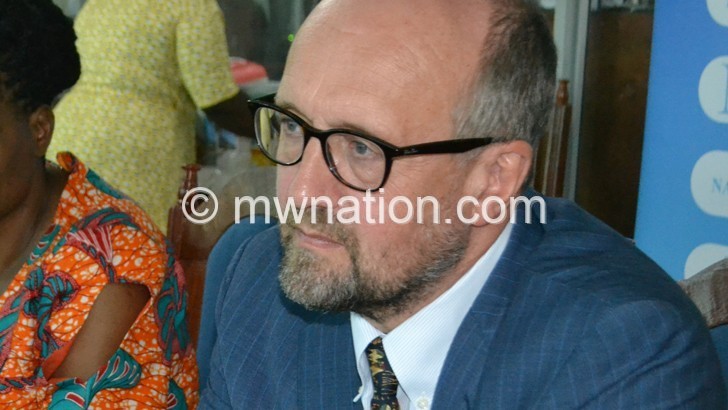World Bank calls for long-term energy investments
The World Bank says Malawi needs to invest in long-term programmes in the energy sector if the country is to achieve sustainable economic growth.
New World Bank country manager Greg Toulmin said this in an interview yesterday after his familiarisation tour of Nation Publications Limited (NPL) head office in Blantyre.

He said while it is clear that the country has issues with access to energy as evidenced by its low penetration rate of 10 percent, in the long-term Malawi needs to invest in energy distribution and transmission, including solar and wind energy.
Said Toulmin: “It is clear that Malawi needs greater access to energy and that the country needs to build up the transmission backbone, develop better distribution channels, particularly in the rural areas and, of course, it needs to have the power to be able to put in place that system.
“We [the World Bank] are glad to see that the government is exploring the possibility of having independent power producers that should supplement the capacity already installed.”
He said the World Bank is particularly thinking of how to expand access to electricity and explore options of delivering the power, pointing out the long overdue Malawi-Mozambique interconnection point as key.
“We want to build a connector which should help in providing the power between Malawi and Mozambique so that in the short term, power from Mozambique can supplement the system, but perhaps, in the longer term, who knows, we should have better options,” said Toulmin, adding the project, estimated to cost $40 million, already has a number of development partners.
Toulmin said Malawi should strive to achieve an annual growth of between five to six percent per year to keep up with the growing population and its demands, saying diversification from agriculture is key.
His sentiments come at a time the Electricity Supply Corporation of Malawi (Escom) has painted yet another gloomy picture of prolonged load-shedding for the next six months before the start of the rains to reduced generations due to low water levels in Lake Malawi and its sole outlet, Shire River, where 95 percent of the country’s hydro-electric power is produced.
Malawi’s power system is isolated with no immediate fall back plan in terms of supply challenges as is the case at the moment.
In 2007, the World Bank approved a $93 million credit for the construction of a power link between Malawi and Mozambique, with Mozambique’s share of the credit at $45 million which would have involved the installation of a 135-kilometre (km) 220kV power line from the Matambo substation in Mozambique to Phombeya in Malawi.
On the Malawi side, about 75km of 220kV transmission line was to be built and a new 200kV substation installed at Phombeya, but despite being initiated in 2007 by the Bingu wa Mutharika administration without Parliament approval, the agreement virtually collapsed after Parliament refused to approve the Loan Authorisation Bill in 2009 on cost benefit grounds.
In his remarks during the visit, NPL deputy chief executive officer Alfred Ntonga said the energy crisis has not only affected production, but also the output of businesses nationwide.
In the 2017/18 financial year, government has allocated about K12.7 billion to the energy sector aimed at ensuring there is revolutionary growth in the energy generation, transmission and distribution.
In his State of Nation Address (Sona) three months ago, President Peter Mutharika indicated energy was a catalyst for socio-economic development as such government had put in place programmes aimed at improving generation, transmission and distribution.





